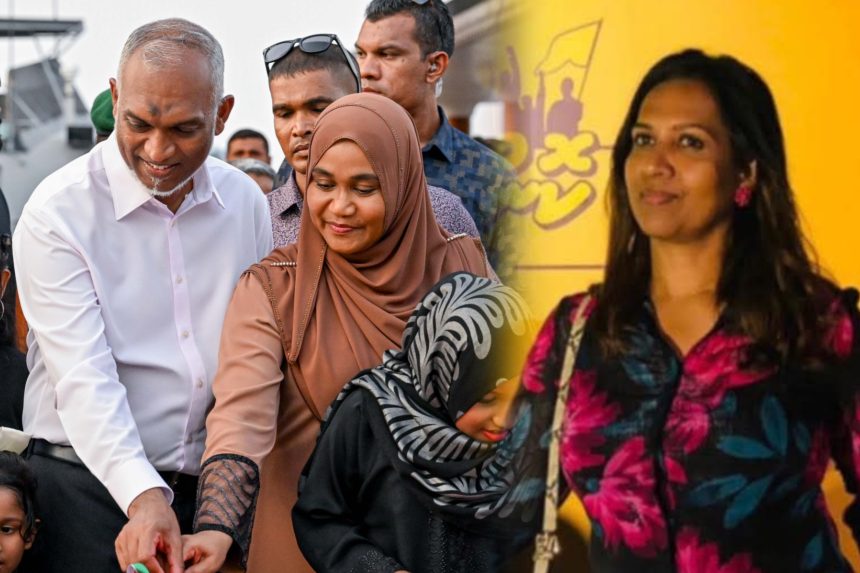The Civil Court has officially upheld First Lady Sajidha Mohamed’s defamation claim, enabling a civil case seeking damages over remarks made by senior MDP activist Mariyam Zubair (Mandhy). Mandhy had implied that the ban on vaping products in the Maldives stemmed from allegations involving 16‑year‑old Umair Mohamed Muizzu, the President’s son—a claim the First Lady swiftly rejected.
The ruling, delivered in absentia due to the absence of timely legal briefs from Mandhy, the Maldivian Democratic Party (MDP), and its Chairperson Fayyaz Ismail, confirmed that Umair’s reputation had indeed been harmed, empowering Sajidha as his guardian to initiate the civil action . Though the defendants later submitted responses, the court accepted only Sajidha’s request for a default judgment, as filings were made past the deadline.
Central to the court’s decision was the principle that a guardian may act on behalf of a minor under the Children’s Rights Protection Act—rejecting the MDP’s argument that only Umair himself could sue.
However, the court declined to hold the MDP or Chairperson Ismail responsible for Mandhy’s statements, determining that there was insufficient evidence to attribute those comments to the party’s leadership. Similarly, a public apology was not mandated.
Sajidha also advanced a separate complaint in the Family Court, asserting that Zubair’s allegations violated Umair’s dignity and safety under both domestic child protection law and the UN Convention on the Rights of the Child.
🏛️ Legal & Political Implications:
- Defamation Judgment Reinforces Child Protector Role:
The judgment sets a precedent affirming that guardians may litigate to defend minors’ reputations—a notable legal reaffirmation in Maldivian defamation jurisprudence . - Appeal Before High Court Pending:
The MDP has lodged an appeal citing procedural irregularities and jurisdictional challenges. The High Court has officially registered this appeal and hearings are forthcoming . - Sealed Civil Proceedings:
The Civil Court refused to livestream the hearings, citing the need to protect the minor’s privacy and prevent reputational harm . - Political Blowback:
This legal confrontation sharpens the tension between the ruling party and opposition, while raising broader questions about the intersection of political campaigning and responsibilities toward children.
🚨 Next Steps:
- High Court Review:
The appeal may pivot on whether Sajidha, as guardian, had rightful standing to initiate proceedings and whether in‑absentia judgments are permissible. - Family Court Verdict:
A decisive ruling could affirm constitutional child-protection rights in defamation cases with political overtones. - Wider Impact:
Outcomes may establish guiding principles for future political discourse involving minors—potentially curbing exploitative rhetoric in political rallies.
This case spotlights the delicate balance the Maldives is navigating—protecting children under the law while preserving the integrity of political debate. As it progresses, both legal scholars and citizens will be watching for its influence on child rights and political accountability.




